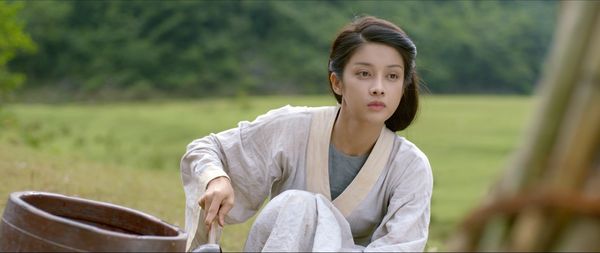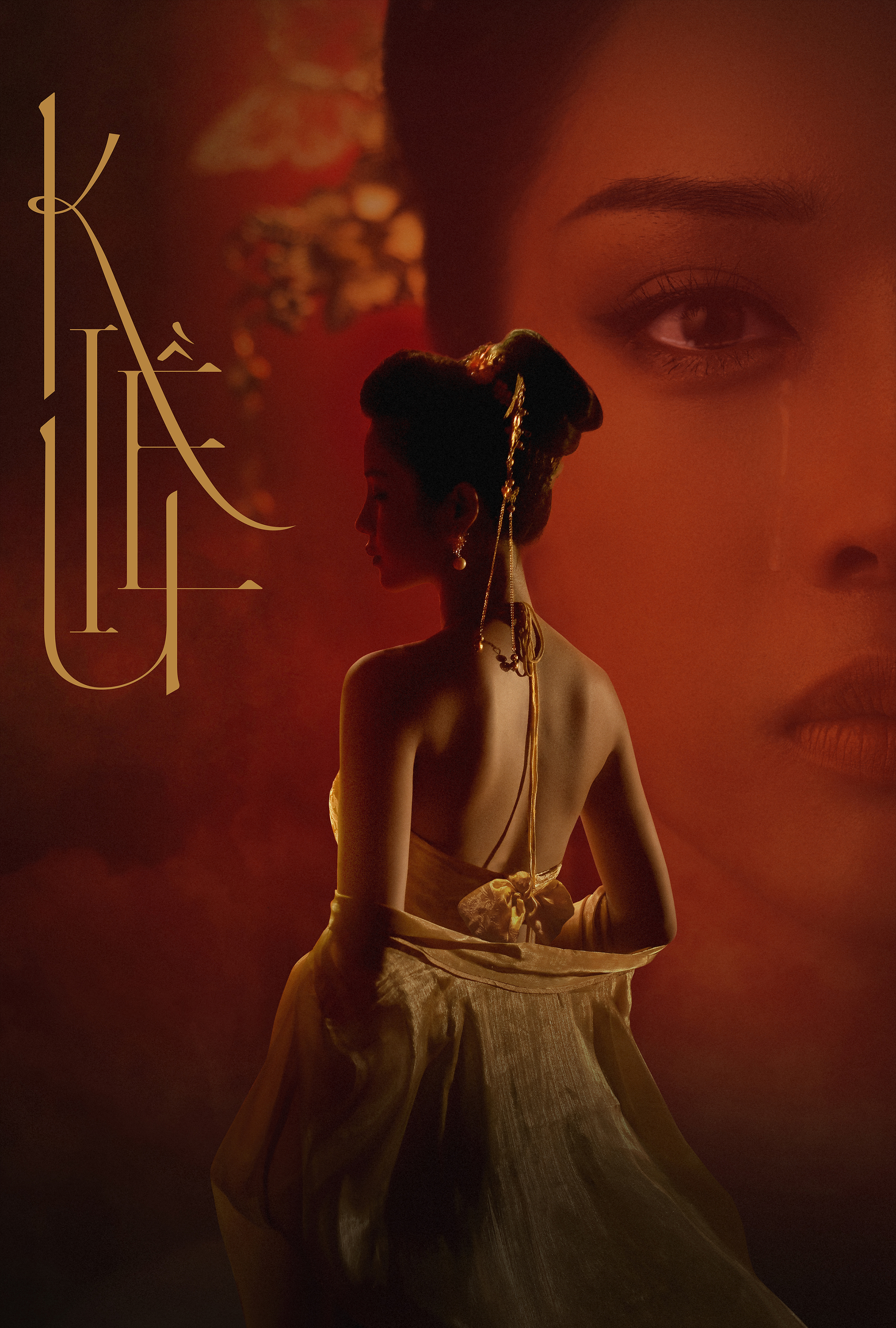Eye For Film >> Movies >> Kieu (2021) Film Review
Kieu
Reviewed by: Jennie Kermode

Based on an epic poem by Nguyễn Du and lavishly produced, with some truly beautiful costume work, Kieu is a film which Vietnam’s small yet hardworking film industry should be proud of – but let’s face it, it never had much hope of securing the Golden Globe nomination it was aiming for. It’s the sort of overblown fantasy romance which Eastern audiences love but which struggle to succeed in the West, and the soap-opera style acting from most of its stars doesn’t help. Amongst those not deterred by kitsch, however, there is a definite niche market for it, and the sheer confidence with which it approaches the sillier aspects of its storytelling invokes a degree of awe.
Kieu (Trinh My Duyen), our heroine, is a pretty young woman taken from a remote village by merchants who promise to introduce her to a wealthy husband. They dress her in fine white silks, endow her parents with all the gold they can eat and carry her off in a palanquin across countless miles of hostile terrain. It’s only when she reaches the end of her journey that she discovers the awful truth: she is not to be married but, instead, forced to serve in a brothel. Distraught, she screams at the woman in charge (who gets the subtitle ‘maniacal laughter’, just to clarify the tone of the thing), but there’s a twist. It turns out that she’s a virgin – something which the brothel owners thought was mythical, but which becomes clear to them when an attempt to take her by force results in her assailant being thrown against a wall by an unseen force – so it’s actually in their interests to sell her as a bride after all.
At this point, the madam switches into kindly matriarch mode and makes some progress in winning over the naïve Kieu. She arranges a match and it seems as if everything will be settled just as soon as the right dress has been bought. The moment Kieu claps eyes on the silk merchant, however, true love strikes. One can tell this from the musical cues. He’s young and handsome, easily misplaces his shirt, and can jump off balconies in slow motion. He sees her image in the river and paints dreamy watercolours. Unfortunately, he’s already married. best not mention that, then.
Is there any hope of happiness for this wistful young woman who whistles to wild birds like a Disney heroine and whose musical talents have the power to charm all around her, man or beast? Perhaps there might have been – even allowing for the jealous wife and said wife’s wealthy, scheming villain of a mother – if it were not that along the way, she has acquired a ghostly guardian, the remnant of a woman at whose neglected grave she once placed flowers. Initially protective, the ghost becomes bitter when denied the opportunity to protect her from her true love by throwing him into a lake. The relationship between them is complex to say the least, but the real tragedy emerges as Kieu finds herself caught between all these different forces with no real power of her own, only her innocence.
The score is sweeping. Bosoms heave and tears flow. There’s also a bit of wuxia action along the way, as the silk merchant has to fend off soldiers to try and keep Kieu safe. The demands of true love are juxtaposed with those of duty in traditional fashion. We are encouraged to feel some pity for the wife, who has been loyal to her husband and never expected him to stray, but who is unwilling to give up without a fight. Her sensual red garments contrast with Kieu’s ivory: everybody is colour-coded. The camera lingers on expressions of heartbreak, shame and rage. The innocence of nature contrasts with the corruption of the city and ridiculously opulent palaces. Everything is fantastically over the top. You will either find Kieu completely unwatchable or end up shaking your head, lamenting that in Hollywood nobody makes ‘em like this anymore.
Reviewed on: 21 Dec 2021
















